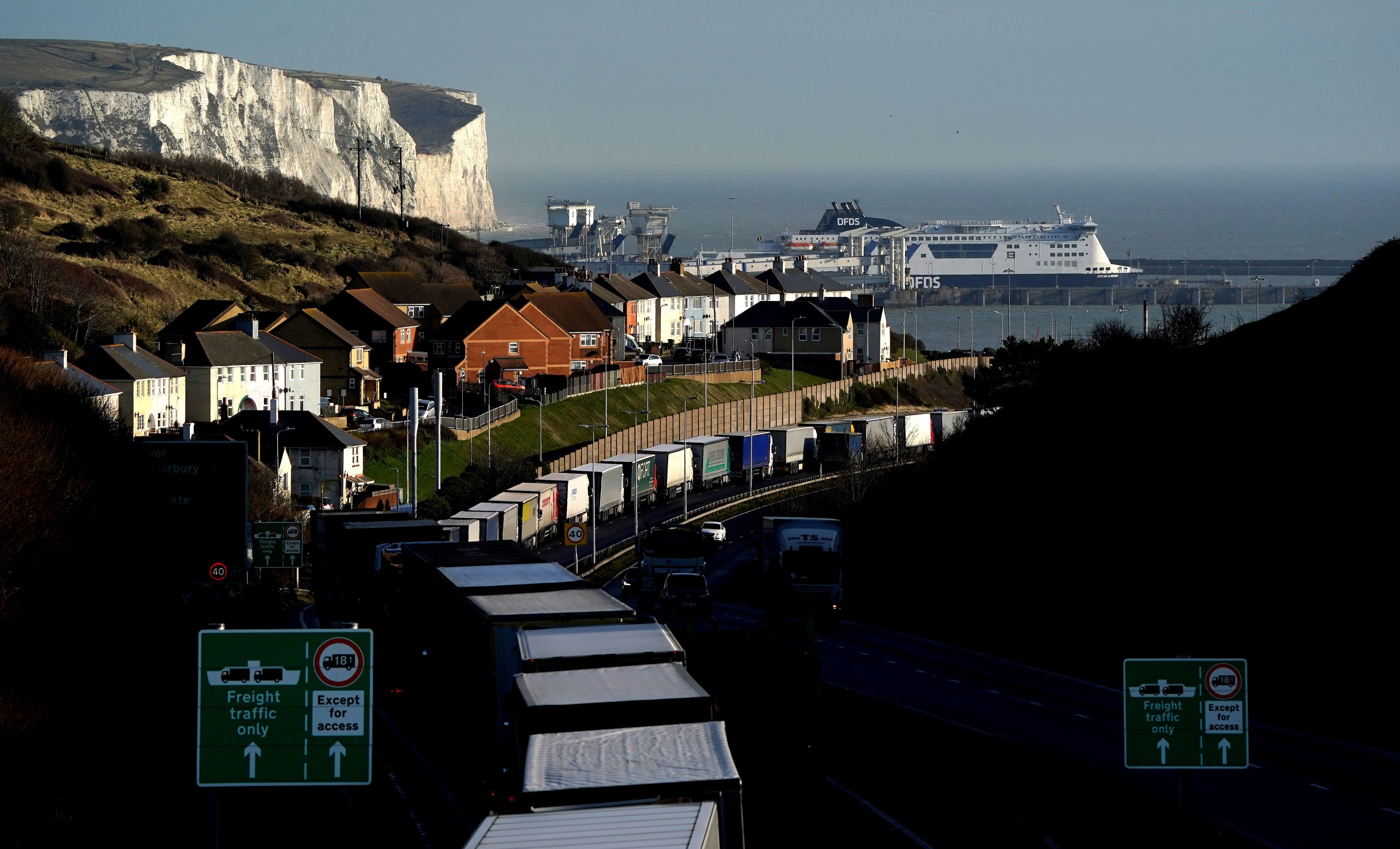Theresa May’s Brexit deal looks better with each passing day
We could have had a deal that kept us in the EU’s economic zone while ending free movement of people, writes John Rentoul

Since the latest customs checks were imposed on 1 January, as part of our phased separation from the EU market, there have been 16-mile queues of lorries in Kent and the devolved government in Northern Ireland has collapsed. Meanwhile, statistics covering 2021, the first year in which we were treated as a non-member by the EU, show a sharp decline in our imports from and exports to the EU, at a time when EU countries have increased their trade with each other and the EU as a whole has increased its trade with the rest of the world.
I do not deny that there are some benefits of Brexit. One of my most unpopular opinions among Independent readers is that we were able to develop and approve vaccines faster than if we had still been a member. I know there was no legal obstacle to our going it alone, but there would have been institutional and moral constraints.
Another is that the vast majority of people in this country want their government to decide the rules about immigration. To me, the economic benefits of free movement are more important, but it seems patronising to suggest that people are wrong to place a high value on a national immigration policy.
However, the economics of this form of Brexit, and the strain it puts on the integrity of the UK, make it seem like an unnecessary and long-lasting mistake. I am not even saying – though this may be another unpopular opinion – that Brexit was a mistake. It was possible to leave the EU without inflicting this level of economic damage on ourselves.
We know that because Theresa May negotiated a deal that would have made it possible. It was an astonishingly good deal. Michel Barnier and the EU leaders who agreed to it must have been out of their minds. They agreed, in effect, to allow Britain to continue to be part of the EU market without the free movement of people. They said the four freedoms (goods, capital, services and people) were indivisible, but signed a deal that divided them.
To keep up to speed with all the latest opinions and comment sign up to our free weekly Voices newsletter by clicking here
It was more complicated than that, of course, which may be why no one on the British side understood what a good deal it was, and vice versa on the EU side, although May had to pretend to her MPs that the deal achieved more of a separation from the EU economy than it did. The key feature of her deal was that it would have kept us in the EU customs union – temporarily, May insisted, until a magical solution was found.
That would have dramatically reduced the checks at the Dover-Calais crossing, and it would have avoided the border in the Irish Sea, making the Northern Ireland situation more easily manageable.
How it became an article of faith on the Conservative back benches that Brexit meant the freedom to sign trade deals with other countries – copying those with the EU – is one of the questions that will puzzle historians for centuries. As will the question of why Labour MPs failed to vote for May’s deal when they had the chance.
Yours,
John Rentoul
Chief political commentator
Subscribe to Independent Premium to bookmark this article
Want to bookmark your favourite articles and stories to read or reference later? Start your Independent Premium subscription today.

Join our commenting forum
Join thought-provoking conversations, follow other Independent readers and see their replies